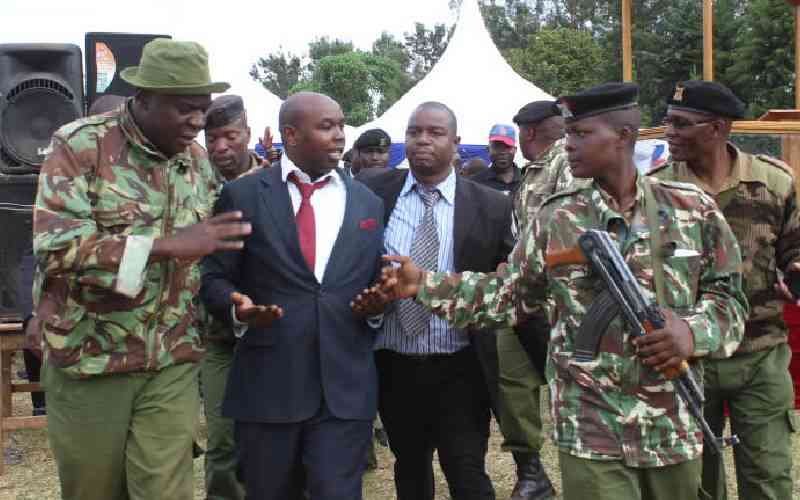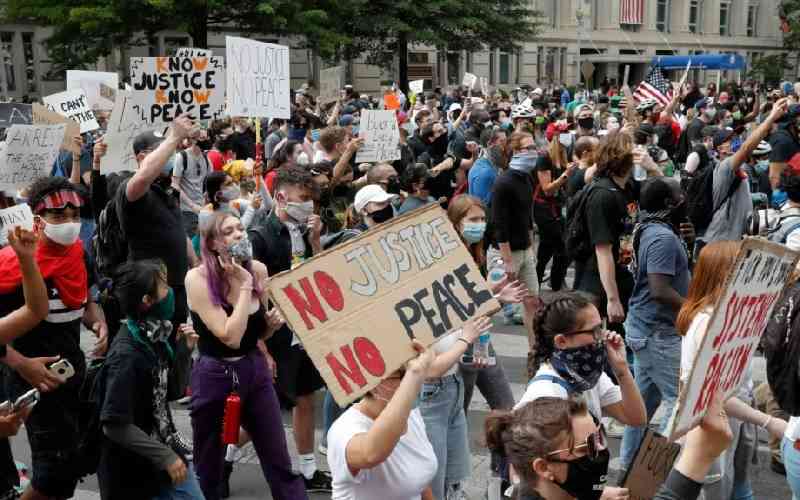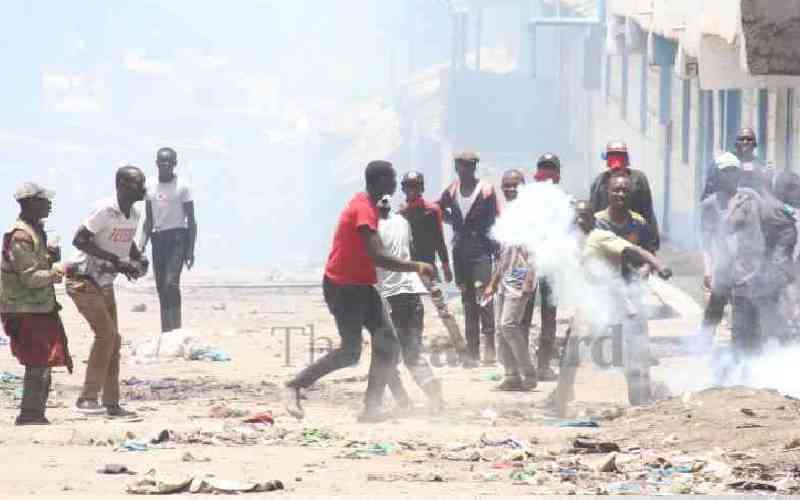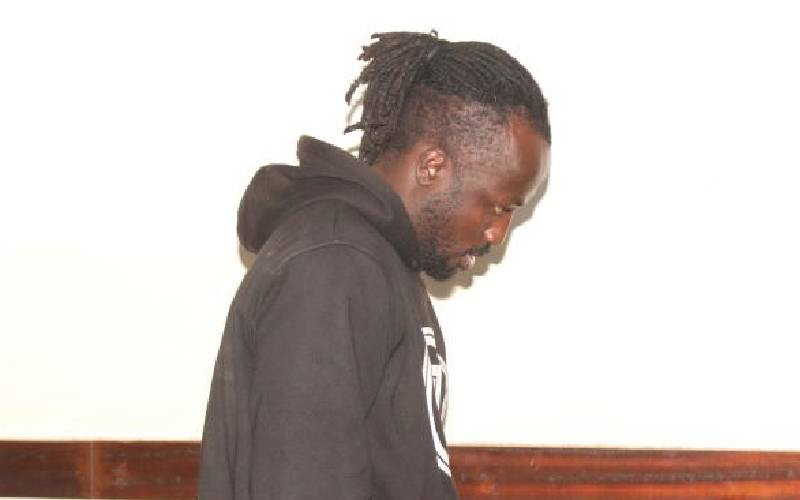If we are not careful, the past creeps up and creates our future. Last week, we buried 17 GSU officers and 3 young boys. Violent extremism claimed the 20 lives. It also robbed the families and constituents of Churo Amaiya MCA Thomas Minito, Loyamorok MCA Kibet Cheretei, Tiaty parliamentary aspirant Pepee Kitambaa and several citizens.
Intense competition and preoccupation with the capacity of the electoral commission to manage our August elections almost hid their tragic deaths from the public view. Yet, their passing is a wake-up call that the 2008 electoral narrative of justice or peace offers us little clarity for a new way of handling the upcoming elections.
The two opposing narratives “No, justice no peace” and “Peace at all costs” were born in the aftermath of the controversial 2007 elections and the trauma of the post-poll violence. This all-or-none thinking has pervaded the view of those vested in the 2017 polls up until now.
Ahead of the IEBC national conference on elections this week, a mental truce has been called. Thankfully, credible and peaceful elections is the new and important narrative. Free and fair elections will create the conditions for peace. In turn, peace will create an enabling environment for us all to go out and elect our leaders.
The joint call for credible and peaceful elections is an important shift in our national consciousness. It is consistent with the constitutional promise contained in Article 81 of elections that are free from violence, intimidation, undue influence and corruption. To achieve it, we must expose the nature of violence and the role it plays in undermining our constitutional ambition.
Powerful politicians in control of the state and the opposition have been guilty of creating pre-electoral uncertainty, fear and violence in the past. Preventing communities from coming out to register and vote has been their simple goal. It is the less violent equivalent of bribing voters to transfer their votes. Both undermine our democracy.
Worrying signs of extremism attacks on our uniformed officers and citizens in Garissa, Mandera and Wajir must be condemned. We must watch carefully the populous counties of Mombasa and the Coast also, lest we see the resurgence of separatist and violent groups.
The triggers of violence are known and they have been used by those who control or don’t control state power. A falsified electoral register, campaigns based on public resources, biased or compromised electoral and security officers and results manipulation are also forms of violence. Using excessive state force to crush legitimate public protest is another. They are in turn, triggers for more violence. If this is not complicated enough, our devolved 47+1 states now make this a more complex and dangerous tool for any of us to exercise.
Delivering non-violent, objective and fair elections in August is not beyond our grasp. It will take removing one million of our ancestors off the elections register, contingency planning training for all party and electoral body staff, strengthening our complaints processes and establishing stronger inter-party liaison committees. It is not too late for civic educators to explain burning down your neighbour’s house or the nearest kiosk are not effective ways of responding to elections offences and rigging. Weak politicians without leadership vision or skills need to divide and militarize us. How else would the voters not see they have no new ideas for our safety, employment or to live free of corruption and impunity?
All-or-none thinking is present across all the political class and us, the voters. As the National IEBC Conference on Elections opens tomorrow, party leaders will be asked to sign credibility and peace pledges. The fog of a violent and controversial past may still be lurking in the back of their minds. I call on them to sign with the clarity that violence and rigging ride together to stalk our upcoming elections.
The only way we can keep Kenyans safe and enfranchised is to leave our elections management and security forces independent and free of undue influence before, during and after the elections. To do otherwise is to risk all.
- The writer is Society for International Development Associate Director. The views are personal. [email protected] or @irunguhoughton
 The Standard Group Plc is a
multi-media organization with investments in media platforms spanning newspaper
print operations, television, radio broadcasting, digital and online services. The
Standard Group is recognized as a leading multi-media house in Kenya with a key
influence in matters of national and international interest.
The Standard Group Plc is a
multi-media organization with investments in media platforms spanning newspaper
print operations, television, radio broadcasting, digital and online services. The
Standard Group is recognized as a leading multi-media house in Kenya with a key
influence in matters of national and international interest.
 The Standard Group Plc is a
multi-media organization with investments in media platforms spanning newspaper
print operations, television, radio broadcasting, digital and online services. The
Standard Group is recognized as a leading multi-media house in Kenya with a key
influence in matters of national and international interest.
The Standard Group Plc is a
multi-media organization with investments in media platforms spanning newspaper
print operations, television, radio broadcasting, digital and online services. The
Standard Group is recognized as a leading multi-media house in Kenya with a key
influence in matters of national and international interest.








